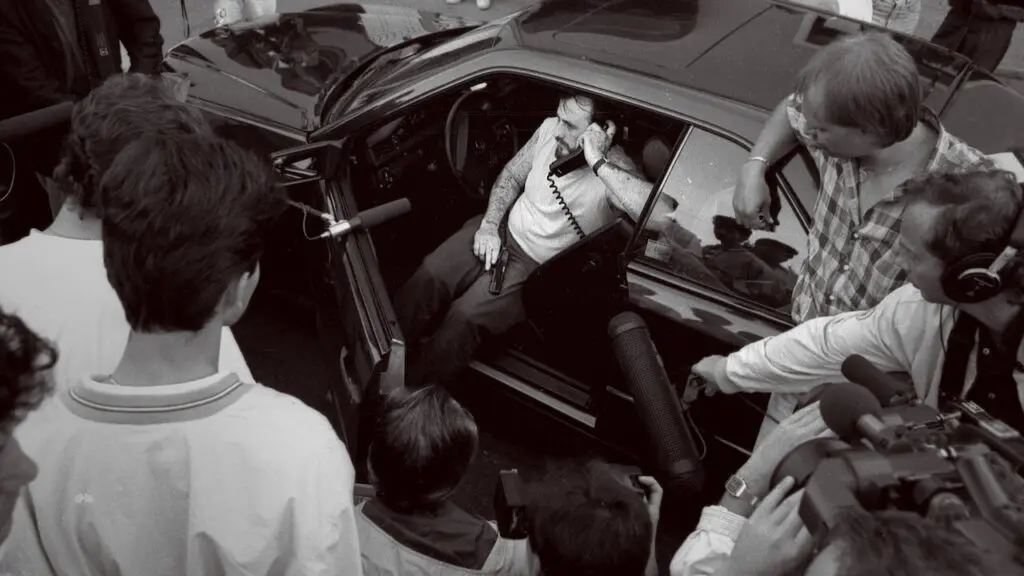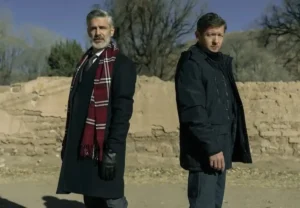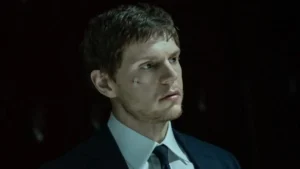Summary
Gladbeck: The Hostage Crisis is overwhelmingly powerful and raw. Volker Heise’s documentary exposes our appetite for flirting with the viewer’s own moral ambiguity that remains unchanged.
Netflix documentary Gladbeck: The Hostage Crisis was released on the streaming service on June 9th, 2022.
I was taken aback by the latest Netflix crime documentary, Gladbeck: The Hostage Crisis. Some of the events are jaw-dropping and play out like a limited television series that would make you say out loud, “That would never happen.” Director Volker Heise (Aikamatka Schwarzwaldiin 1902) covers 54 hours of the crisis in just over 90 minutes and the astonishing things that transpire. Real-life criminals, reports, police, and hostages are arms-length away from cameras. Then, in the eyebrow-raising hubris scene, reporters laugh while standing around Hans-Jürgen Rösner, one of the actual hostage-takers. He had the stones to hold an impromptu press conference in the middle of the whole damn thing. All while holding a gun and his finger on the trigger.
Heise’s documentary is brave enough to use strictly pictures, archival television, and audio footage recordings. This sets a spine-tingling pace that plays like a fictional thriller. You won’t find interviews or expert testimony here that’s brimming with intrigue and moral dilemmas, making the outcome more powerful. Rösner and his partner, Dieter Degowski, share a dangerous mix of over-confidence, over-ambition, and arrogance. They created this mess on live television, and they are the stars. Then you have the reporters ignore the basic principles of becoming a player in the story and allowing themselves to be involved. As the film unfolds, you and I become the ongoing viewers finding entertainment and wondering what will happen next. If only we remembered Herb Morrison’s words and humanity as we got to the end.
Gladbeck: The Hostage Crisis took place in August 1988 that began in West Germany, became a traveling road show, and ended brutally in the Netherlands. Was this the downfall of the media? Some say this happened between the 1980s and 2000. You may be right because ethics took a back seat to catch the big story to put on sensationalized 80s television. Do you want me to prove my point? In a scene that still makes me question people’s humanity, a journalist puts a recording device in front of a female hostage’s face while Rösner has a gun pressed uncomfortably into her neck. All while reporters fight for space and angle to grab the perfect frozen moment in history.
Gladbeck: The Hostage Crisis is a thrilling and powerful documentary about ethics, the arrogance of mythical proportions, and structural incompetence. This was a significant moment that revamped journalistic ethics. What Heise accomplishes here is to show that not much has changed with the viewer’s appetite—for the insatiable, the macabre, and like a moth to the flame, flirting with our own moral ambiguity is not just entertainment but in our reality.
What do you think of the Netflix documentary Gladbeck: The Hostage Crisis? Comment below.
You can watch this documentary with a subscription to Netflix.




